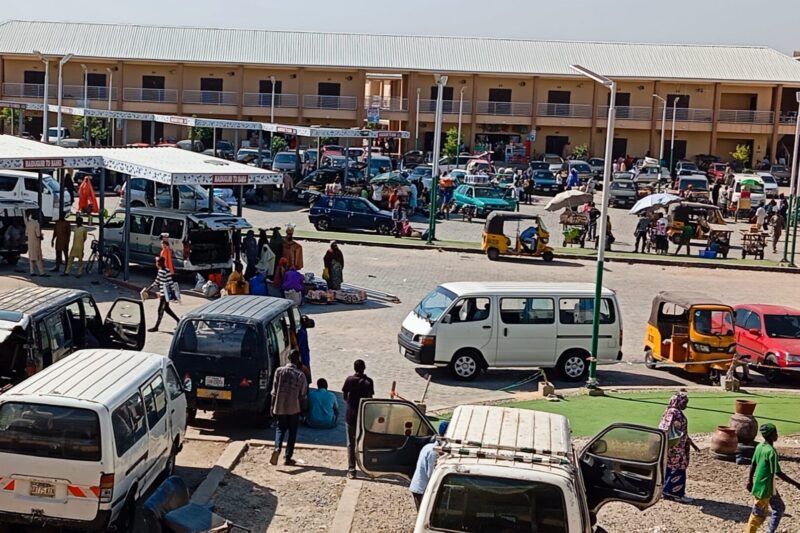Economy is still weighed down by the effects of hyperinflation, frequent fuel price hikes, power shortages and devaluation of the naira which have led to a steep rise in the cost of living.
Nigeria’s economy has exceeded expectations with 3.46% growth year-on-year in the third quarter of 2024, driven by expansion in the services sector.
The National Bureau of Statistic (NBS) made the announcement on Monday, November 25. It said gross domestic product (GDP) growth was higher than the 3.19% recorded in the second quarter and the 2.98% in the first, adding that unemployment declined 4.6% in the same period.
However, the Nigerian Association of Chambers of Commerce, Industry, Mines and Agriculture (NACCIMA) said in a statement that the figures were not “a true reflection of the realities” in the country.
Dele Kelvin Oye, the national president, said the data did not adequately consider critical factors such as rising taxation, the anticipated ramifications of the 2024 tax bill, and the adverse effects of regulatory barriers that hindered local and foreign investment.
“We must advise caution on how these figures are received and interpreted given the current realities in light of the prevailing economic challenges confronting many Nigerians countrywide.
“The significant disconnect between these statistics and the lived realities of countless citizens is concerning. The Nigerian economy is still weighed down by the effects of hyperinflation stemming from frequent fuel price hikes, power shortages and naira devaluation which resulted in a steep rise in the cost of living.
“Under these circumstances, the assertion of robust GDP growth appears implausible, particularly as the purchasing power of the average citizen continues to erode alarmingly,” said Oye.
The services sector includes banking, retail and wholesale trade, tourism, real estate, telecommunications, information and communication technology (ICT), entertainment and education.
Nigeria’s inflation rate rose for the second straight month in October, climbing to a four-month high of 33.9% from 32.7% in September.
The rise was driven primarily by escalating food prices, soaring energy costs and ongoing volatility in foreign exchange markets.
Food inflation quickened to 39.2% in October, up from 37.8% in September, amid reduced harvests caused by severe flooding and ongoing crises in key agricultural regions, such as increased insecurity in the northeast.
Transportation inflation picked up to 29.3%, driven by higher petrol and gas prices which have continued to increase since President Bola Tinubu removed the fuel subsidy when he took office last year.
Ordinary Nigerians told RNI that they were baffled by the announcement that GDP had grown.
Babagana Usman, a resident of Maiduguri, the capital city of Borno State in Nigeria’s northeast, said: “Nigeria’s GDP growth is more a political statement than a reality. People are still suffering because of poverty, unemployment and the cost-of-living crisis.
“The so-called growth of the GDP that the government is celebrating has no real impact on the lives of common people. High inflation and huge and ongoing increases in the prices of food and fuel mean that ordinary people are still struggling to make a living and to feed and clothe their families.
“There is high unemployment and many people are living in poverty. Many still can’t afford to eat even two square meals a day, let alone three square meals,” Usman said.
Aisha Abdullahi, also a resident of Maiduguri, said the government needed to reduce unemployment, eradicate poverty and improve the cost of living of its people.
She said “the masses” were not even aware of any GDP growth.
“It is just a statement not a reality. Many young people who graduate from universities with degree certificates in their hands are jobless. They cannot find employment.
“Looking at the current economic hardships, the high unemployment rate, poverty, cost-of-living crisis, high inflation and the exorbitant cost of food and fuel, I do not agree with NBS’s report announcing the GDP growth.
“Certainly, the average person has not experienced this. The economic challenges affecting the people have not changed or got easier,” she said.
Jidda Abdulaziz Ajayi, an economist and senior lecturer in the department of economics at the University of Maiduguri, told RNI that a country’s GDP status was linked to the cost-of-living index as well as per capita income.
“GDP is the total monetary or market value of all the goods and services produced within a country’s borders in a specific time period, usually a year or a quarter. GDP is often used as an indicator of a country’s economic health and to compare the economic performance of different countries.
“GDP is usually calculated based on three main indicators, first is the production or output value added at each stage of the production of goods and services.
“Second is the per capita income earned by individuals and businesses, such as wages, profits, rents and taxes.
“And third the expenditure, which is calculated by adding all the expenditures or spending on final goods and services, such as consumption, investment, government spending and net exports [exports minus imports].
“GDP can be expressed in nominal terms which are current prices or real terms adjusted for inflation.
“In the case of Nigeria’s GDP growth, there is no real impact based on the current economic situation in which people are still struggling to survive and put food on the table because of the high cost-of-living crisis and inflation.
“When GDP grows, one expects to witness an enhanced cost-of-living index, reduction in the unemployment rate, as well as decreases in the price of goods and services. There has been no obvious sign of these. Most ordinary Nigerians are still struggling to make ends meet. They have not seen or experienced an improvement in their daily cost of living.”
SHETTIMA LAWAN MONGUNO








